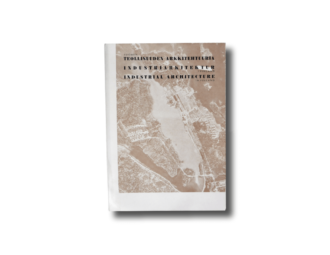CIAM ’59 in Otterlo (Karl Krämer Verlag, 1961) documents the projects, talks and discussions at the 1959 International Congress of Modern Architecture. The book has been edited by Oscar Newman and Jürgen Joedicke and it was published in the Dokumente der Modernen Architektur series as volume 1.
The presented projects include contributions by, for instance, Geir Grung, Viana de Lima, Jacob B. Bakema, Ralph Erskine, and Kenzo Tange. The book also contains the introductory talks, Aldo van Eyck’s essay Is Architecture Going to Reconcile Basic Values?, Louis Kahn’s conclusive talk and much more.
The damnable truth this. When are architects going to stop fondling technique for its own sake – stop stumbling after progress? When are they really going to join the riot and stop gnawing at the edges of a great idea? Surely we cannot permit them to continue selling the diluted essence of what others spent a life-time finding. They have betrayed society in betraying the essence of contemporary thought (…) We simply cannot breathe only one way – we can hold our breath for only a very short time. Modern architecture has been trying hard to breathe only out without breathing in – and that is just as stifling a thing to do as the opposite – at any rate the result is the same. You can’t open up unless you enclose. You can’t just split dual phenomena into polarities and alternate your loyalty from one to the other without causing despair.
– Aldo van Eyck, Is Architecture Going to Reconcile Basic Values? In: CIAM ’59 in Otterlo (Karl Krämer Verlag, 1961; eds. Oscar Newman and Jürgen Joedicke), p.27
The texts are in English and partly in German; there is also a supplementing leaflet that contains the German translations. The rich illustration consists of black-and-white photographs and architectural drawings.
Our copy currently in stock is in nice condition. The pages are clean without any markings, and the binding is fine. There is some age-related yellowing on the edges of the pages. The linen-bound covers show some signs of use but they are mostly clean.
















